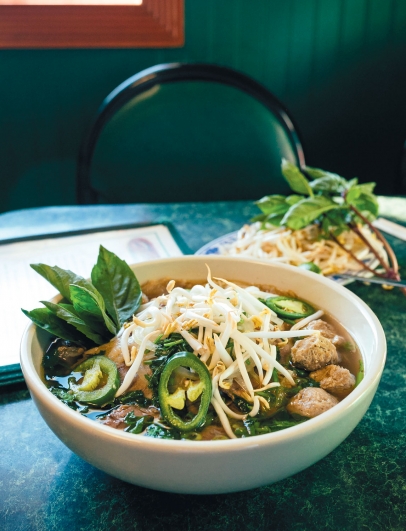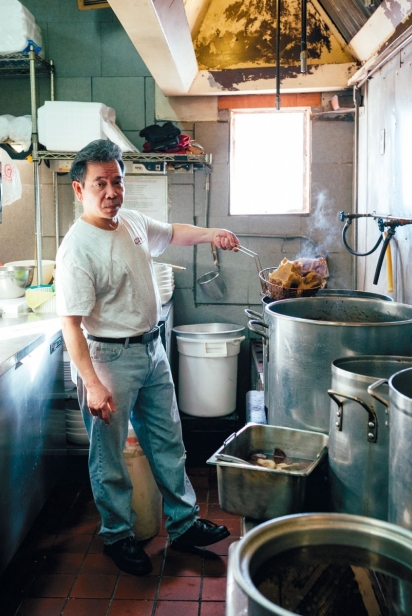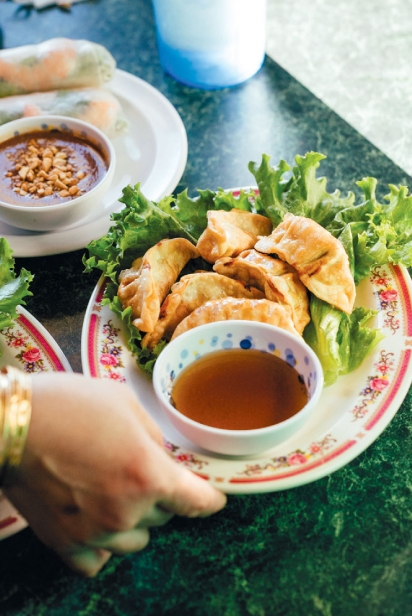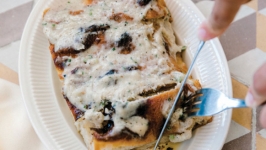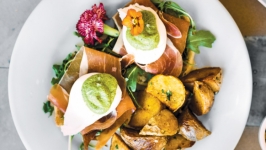Pho Cuong
Refugees have long been important members of modern American society. It takes courage to leave your home and family to travel across the globe, especially in the face of a dire situation.
After the Fall of Saigon, Duy Tran was displaced into a refugee camp in Singapore. Fortunately, he had a cousin in Connecticut who could sponsor him in America. He knew he also had family in Oklahoma City, but didn’t even know their full names or addresses. After a brief stay in New England, he took the risk and hopped on a Greyhound.
“When I came here at the bus station, I only had $2.85 in my pocket,” Duy reminisces. After spending two days at the station unsure of what to do next, a taxi cab driver noticed and brought over a phone book to help.
“I know these people, but I don’t know where they live,” Duy explains. “So he helped me thumb through the phone book. All Vietnamese people, Tran, Nguyen, a whole bunch of it in the phone books, but I only knew the first name and the last name. The difference is the middle name. So I just kinda picked one out with the same last name and same first name.”
Luckily, it was the right house, and his family paid his cab fare and let him into their home. Soon, he found a job washing dishes for $2.25 an hour and eventually moved up to cook. He finished school and initially had different ambitions that had nothing to do with food.
“The owner told me, you’re a good cook. I think one day you’re going to own your own restaurant. At that time, in the back of my mind I said, ‘Heck, after this and school, I will never go back into a kitchen because it’s so damn hot,’” Duy says with a hearty laugh. “This is hard work, I wanted nothing to do with the restaurant business.”
That attitude changed in 1994 when he helped a relative open Pho Cuong. The little green house on 30th and Classen used to be a Long John Silvers, famously where Wayne Coyne of the Flaming Lips worked his first and only “real” job. At the time, the Asian District was a rougher place to be.
“Back then, the Classen District was a mess. It was a whole bunch of drugs, crazy people, things like that. When we first opened this up, our windows got broke every week. Even people coming in asking for extortion, things like that. Back then, there was a bunch of Asian gangs in this neighborhood.”
There were only a few other pho restaurants in town at that time, so the cuisine was very unique in Oklahoma City. It took several years for the restaurant to get its footing, with Duy working his day job and then coming in at 9 p.m. with his wife every night to prep for the next day’s service.
Even today, he still practically lives at Pho Cuong. “I oversee the kitchen. Matter of fact, all the broth, whatever we serve to the customer, I’m the one who marinated or cooked them all,” Duy proudly pronounces. When the restaurant is short-staffed, it’s not uncommon for him and his wife to spend twenty hours a day in the building.
That kind of workload would make most people weary and burnt-out, but Duy speaks about his cooking with passion. He only uses whole, not ground, spices like anise and weighs them out meticulously each day. The beef broth Pho Cuong serves can take up to ten hours to simmer. On a busy day, like chilly winter Sundays, they can go through 500 quarts of the robust and fragrant soup.
After nearly 25 years cooking every day in the same space, some chefs would suffer from dampened creativity, but Duy still strives to create new dishes and add to the menu every year. Some, like the Mi Tom Thit Nuong, started as an egg noodle soup with pork and shrimp that he would cook for dinner for his wife while prepping after hours.
Then there is what is perhaps Duy’s signature dish, the Bun Bo Hue. After watching his guests squeeze copious amounts of lime and Sriracha sauce into their pho, he was inspired to make a broth that didn’t need so many extras. After several gallons of test batches, he settled on a soup flavored with pineapple, lime, and tamarind, a creation that quickly became a local favorite.
The tireless work, passion, and innovation Duy has brought to Oklahoma City’s culinary scene proves that contributors to our community can come from anywhere. In a time when fearfulness of outsiders seems to be escalating, stories like Duy’s show the value of welcoming refugees into our lives.
> Pho Cuong, 3016 North Classen Boulevard, Oklahoma City


